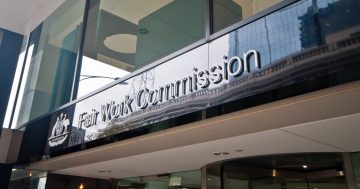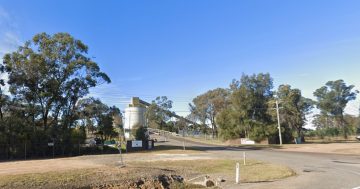
Business Illawarra Executive Director Adam Zarth addresses the Federal Budget lunch in May. Photo: Business Illawarra.
Illawarra businesses are now confronting the impact of an economic slowdown that has its genesis in the ongoing post-pandemic disruption of supply chains, together with the Russian invasion of Ukraine.
This has been combined with an energy crisis that has been decades in the making, as governments failed to deliver an orderly transition away from coal-fired electricity generation or certainty on an affordable supply of natural gas.
In the wider community, we are all feeling the impact of both rising energy prices and interest rates on our household budgets.
However, local business operators are facing the additional challenges of wage increases for key workers together with dwindling consumer spending, which is hurting restaurants, retailers and personal services the most.
Businesses are more concerned about consumers cutting back on spending than their own operations. They feel powerless to control this trend, which shows worrying signs of accelerating, leading one of our members to remark: “What I am experiencing now is worse than the March 2020 COVID lockdowns.”
Against this backdrop, you might understand why the recent decision by the Fair Work Commission to increase both the Minimum Wage and Modern Award Rates by 5.75 per cent did not receive a warm reception from the business community.
Like everyone else, employers want their frontline workers to live in comfort and afford the essentials. But at this juncture in the economic cycle it would be far preferable to deliver this through cost of living relief: more affordable rents and groceries, and lower energy bills and taxes.
Business NSW, our state counterparts, estimate that the ruling will impose $4.6 billion in additional costs to businesses across the state in the first full pay period following 1 July 2023. And it advises that, because of technical changes in the way the National Minimum Wage is aligned, the effective increase for the National Minimum Wage is actually 8.6 per cent.
The Illawarra will disproportionately feel the impact of this, as it is particularly reliant on the sectors hardest hit: healthcare and social assistance, and accommodation and food services.
With their profit margins already squeezed, many businesses cannot absorb wage and other cost increases and so will have to pass them on to consumers. For those businesses locked into long-term contracts that make this impossible, they will find cost savings internally.
An increasing proportion of businesses we survey are unfortunately considering reducing staff due to these rising costs they are facing, with about one in four employers indicating that they will shed staff in the next three months.
This is reflected in reports from SEEK that job ads fell 0.6 per cent for the month of May nationally. And, concerningly, only job ads in the public sector have increased – mostly for teachers and nurses.
Unemployment is starting to creep back up across the board. Post-pandemic, the Illawarra has had a tighter than average labour market, with our 12-month average unemployment rate at 2.7% sitting even lower than the state average of 3.3%.
While May unemployment figures released on Thursday show the rate coming back slightly from 3.7 per cent to 3.6, it only means that interest rates are more likely to keep rising as the economy – and therefore inflation – are still running hot.
Some will take heart from the news that there will eventually be a greater pool of potential employees to choose from, and we all know of local businesses still struggling to fill existing vacancies for skilled workers.
However, rising unemployment is ultimately bad news for everybody and will see consumer spending out in the local economy continue to decline.
Governments have a role to play in supporting business through what is a cost-of-doing-business crisis that will need more attention over the coming 12 months.
The May Federal Budget placed a clear focus on cost-of-living measures for Australians, but there is more to do to address pressures on business. While we welcomed the $20,000 instant asset write-off extension, it is easy to see why we will seek more relief in future state and federal budgets on behalf of businesses.
And in the meantime, it is critical that we also address the high costs of housing and energy that act as twin handbrakes on our collective productivity and will severely hamper our recovery when the time comes.
Adam Zarth was appointed executive director of the Illawarra Business Chamber, now Business Illawarra, in 2018. His role is to represent the 27,000 businesses that comprise the Illawarra, a $25 billion regional economy, driving strategic policy and advocacy work and delivering business development services to members. He previously worked with the NSW Government as Chief of Staff to the Minister for Disability and Multiculturalism.

















